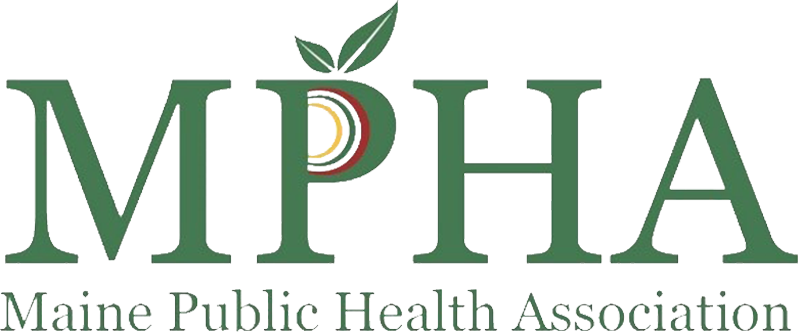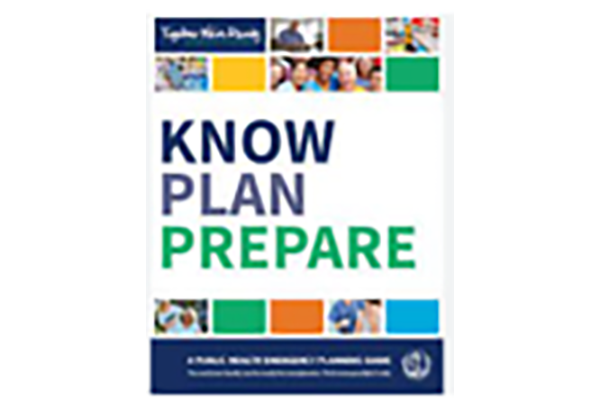
Course Information
- Audience: All public health professionals working in nonprofits, healthcare, educational institutions, government and private sector
- Format: Webinar
- Date/Time: Thursday, April 3, 2025 12:00 PM – 1:00 PM ET.
- Price: Free
- Length: 1 hour
- Credential(s) eligible for contact hours: Sponsored by New England Public Health Training Center (NEPHTC), a designated provider of continuing education contact hours (CECH) in health education by the National Commission for Health Education Credentialing, Inc. This program is designated for Certified Health Education Specialists (CHES) and/or Master Certified Health Education Specialists (MCHES) to receive up to 1 total Category I continuing education contact hours. Maximum advanced-level continuing education contact hours are 1. Provider ID: Event ID: .If you are not seeking a CHES/MCHES contact hours, if you complete the post-test and evaluation, you will receive a Certificate of Completion. The Certificate will include the length of the course.
- Competencies: Public Health Sciences Skills
- Learning Level: Awareness
- Companion Trainings: None
- Supplemental materials:None
- Pre-requisites: None
About this Webinar
The webinar will consist of a broad overview of cancer prevention in Maine. This will include information on the cancer programs at Maine CDC, the 5 cancer buckets (arsenic, radon, obesity, alcohol, and tobacco) that the Maine Public Health Association are working on, and a look at some Maine cancer data.
What you'll learn
- Describe the four cancer programs within Maine CDC
- Explain the difference between primary, secondary, and tertiary cancer prevention
- Discuss the associated cancer risk data
- Identify prevention activities in Maine
-
Subject Matter Expert
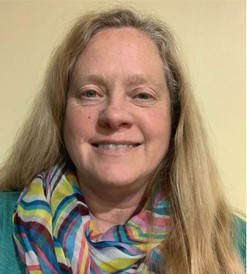 Becky (Rebecca) Pearce, MA
Becky (Rebecca) Pearce, MA
Becky is the Health Program Manager for the Maine CDC Comprehensive Cancer Control Program. She came to Maine CDC from the world of academia after teaching communication classes at various colleges in the U.S. for 20 years. Becky began working for the tobacco program at Maine CDC in May of 2008. She was hired to oversee the media contract for the program as well as to work with two rural public health districts on physical activity, nutrition, and tobacco. In 2012 she began working with the cancer program and moved into the Program Manager position in 2022. Since then, she has worked on cancer prevention, promoting the US Preventive Services Task Force cancer screening recommendations, HPV vaccinations, radon testing, lung cancer screening, and has been involved with the updating of multiple cancer plans. Becky holds a BA and a MA in communication from the University of North Dakota.
Enrollment and Contact Hours
Select the Enroll button below to register for the course. If you have any trouble accessing the course, contact support@nephtc.org.
Acknowledgement: This project is supported by the Health Resources and Services Administration (HRSA) of the U.S. Department of Health and Human Services (HHS) as part of award 2 UB6HP31685‐05‐00 “Public Health Training Centers.” The contents are those of the author(s) and do not necessarily represent the official views of, nor an endorsement, by HRSA, HHS or the U.S. Government.
This training was supported by the Health Resources and Services Administration (HRSA) of the U.S. Department of Health and Human Services (HHS) as part of a financial assistance award totaling $400,000 with 100% funded by HRSA/HHS and
0% funded by nongovernment source(s). The contents are those of the author(s) and do not necessarily represent the official views of, nor an endorsement, by HRSA/HHS, or the U.S. Government.
* Yale School of Public Health, Office of Public Health Practice, a New England Public Health Training Center partner, is a designated provider of continuing education contact hours (CECH) in health education by the National Commission for Health Education Credentialing, Inc. All CHES credit inquiries are managed by YSPH
Registration
Select the Enroll Me button below to register for this recording. If you have any trouble accessing the recording, contact support@nephtc.org.
Enroll Me
Acknowledgement: This project is supported by the Health Resources and Services Administration (HRSA) of the U.S. Department of Health and Human Services (HHS) as part of award 2 UB6HP31685‐05‐00 “Public Health Training Centers.” The contents are those of the author(s) and do not necessarily represent the official views of, nor an endorsement, by HRSA, HHS or the U.S. Government.

Course Information
- Audience: Community health worker, public health professional, nurses, people working with populations requiring chronic care
- Format: Webinar
- Date/Time: February 27, 2025
1:00 - 2:00 PM EST - Price: Free
- Length: 1 hour
- Credential(s) eligible for contact hours: Sponsored by New England Public Health Training Center (NEPHTC), a designated provider of continuing education contact hours (CECH) in health education by the National Commission for Health Education Credentialing, Inc. This program is designated for Certified Health Education Specialists (CHES) and/or Master Certified Health Education Specialists (MCHES) to receive up to 1 total Category I continuing education contact hours. Maximum advanced-level continuing education contact hours are 1. Provider ID: 1131137 Event ID: PM1131137_06222020.
If you are not seeking CHES/MCHES contact hours, if you complete the evaluation, you will receive a Certificate of Completion. The Certificate will include the length of the course. - Competencies: Public Health Sciences Skills
- Learning Level: Awareness
- Companion Trainings: None
- Supplemental materials:None
- Pre-requisites None
About this Webinar
Anal cancer is rare in the general population but is a major risk for some patients including people living with HIV and men who have sex with men. Using the same methods employed to drastically decrease cervical cancer, new guidelines from the CDC have officially recommended active screening and treatment for the first time. Learn the hows, whys, and whats of it all with Dr. William DeWitt, who has been providing, precepting, and educating about this often overlooked care for many years.
What you'll learn
At the end of the course, participants will be able to:
- Define at risk populations for anal cancer
- Understand current guidelines regarding routine screening for anal cancer prevention purposes
- Describe High Resolution Anoscopy and its use in anal cancer prevention
Subject Matter Experts

William DeWitt
MD, HHIVS
William DeWitt, MD, HHIVS is a family medicine physician. He has been providing anal cancer prevention care with high resolution anoscopy and high-grade dysplasia treatment since 2014 after being trained at Callen-Lorde in NYC (the country’s oldest LGBTQ+ focused FQHC). He is currently the medical director of a new LGBTQ+ focused clinic in Providence, RI named Open Door Health. He is currently serving as part of the implementation committee for the International Anal Neoplasia Society, the organization that is responsible for the pioneering research and methods for this care.
Registration
Select the Enroll Me button below to register for this webinar. If you have any trouble accessing the webinar, contact support@nephtc.org.
Acknowledgement: This project is/was supported by the Health Resources and Services Administration (HRSA) of the U.S. Department of Health and Human Services (HHS) under grant number UB6HP31685 “Regional Public Health Training Center Program.” This information or content and conclusions are those of the author and should not be construed as the official position or policy of, nor should any endorsements be inferred by HRSA, HHS or the U.S. Government.
* Yale School of Public Health, Office of Public Health Practice, a New England Public Health Training Center partner, is a designated provider of continuing education contact hours (CECH) in health education by the National Commission for Health Education Credentialing, Inc. All CHES credit inquiries are managed by YSPH
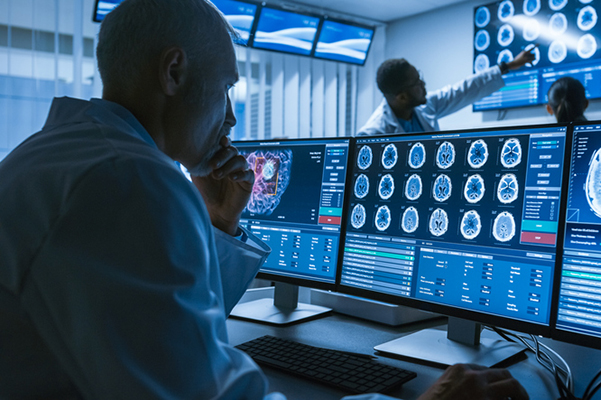
Control and Prevention Strategies in Epidemics
How do we get to the end of the outbreak? Learn how to monitor and follow outbreaks once control measures are in place.
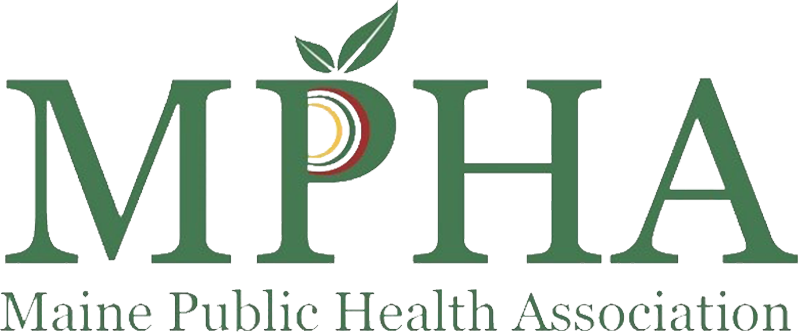


Register
Course Information
- Audience: Community health worker, public health professional, nurses, people working with populations requiring chronic care
- Format: Webinar
- Date/Time: June 22, 2020
2:00 - 3:00 PM EST - Price: Free
- Length: 1 hour
- Credential(s) eligible for contact hours: Sponsored by New England Public Health Training Center (NEPHTC), a designated provider of continuing education contact hours (CECH) in health education by the National Commission for Health Education Credentialing, Inc. This program is designated for Certified Health Education Specialists (CHES) and/or Master Certified Health Education Specialists (MCHES) to receive up to 1 total Category I continuing education contact hours. Maximum advanced-level continuing education contact hours are 1. Provider ID: 1131137 Event ID: PM1131137_06222020.
If you are not seeking CHES/MCHES contact hours, if you complete the evaluation, you will receive a Certificate of Completion. The Certificate will include the length of the course. - Competencies: Community Partnership Skills
- Learning Level: Awareness
- Companion Trainings: None
- Supplemental materials:Session PowerPoint
- Pre-requisites None
About this Webinar
For all outbreaks, the notion is to “break the chain” and to break it in as many places as possible. These processes have to balance civic liberty, community motivation and ownership, as well as economic stability. We will look at both nonpharmaceutical interventions for pandemic control, including physical distancing and contact tracing, and the promise of vaccination and case management tools, such as drugs, that influence the course and outcome. We will discuss monitoring and following outbreaks to assess the adequacy of control measures and the trade-offs, and use stories from Ebola, COVID-19 and other outbreaks to illustrate these concepts.
What you'll learn
At the end of the course, participants will be able to:
- Describe purpose of outbreak response.
- Describe factors that influence the decision to implement control measures.
- Describe common response and control measures used during outbreaks and emergencies.
- Define appropriate interventions for different modes of transmission.
- Discuss the importance of monitoring the effectiveness of outbreak response.
- Name 2 indicators to monitor the effectiveness of outbreak response.
Subject Matter Experts

Sharon McDonnell
BSN, MD, MPH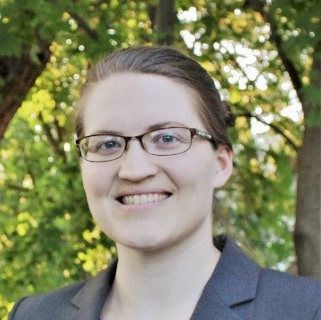
Katherine Nenninger
MD
Sharon received her BSN at the University of Florida and MD from the University of California, San Diego. After training in Family Medicine, she went to Pakistan/Afghanistan to work with NGOs and then WHO. She joined the US CDC as an EIS Officer and is board certified in Preventive Medicine and Public Health. She has worked in the state health departments in Florida and Vermont. After CDC She was on Faculty at Dartmouth Medical School and has continued to do work in International Disease Surveillance and Response and Epidemiology Training. She worked in Liberia for 2 years for the Ebola response with IRC and CSTE/CDC. Currently she teaches epidemiology with the University of New Hampshire and consults with the Leadership Preventive Medicine Residency Program at the Maine Medical Center. She helps co-found the Yarmouth Community Coronavirus Task Force in Yarmouth Maine.
Katherine went to medical school at the University of Virginia and completed an internal medicine residency at Maine Medical Center. She is currently in the Leadership in Preventive Medicine Fellowship training program through Maine Medical Center, which is a training program that includes public health coursework through the University of New England, clinical healthcare, and projects related to population medicine.
Registration
Select the Enroll Me button below to register for this webinar. If you have any trouble accessing the webinar, contact support@nephtc.org.
Acknowledgement: This project is/was supported by the Health Resources and Services Administration (HRSA) of the U.S. Department of Health and Human Services (HHS) under grant number UB6HP31685 “Regional Public Health Training Center Program.” This information or content and conclusions are those of the author and should not be construed as the official position or policy of, nor should any endorsements be inferred by HRSA, HHS or the U.S. Government.
* Yale School of Public Health, Office of Public Health Practice, a New England Public Health Training Center partner, is a designated provider of continuing education contact hours (CECH) in health education by the National Commission for Health Education Credentialing, Inc. All CHES credit inquiries are managed by YSPH
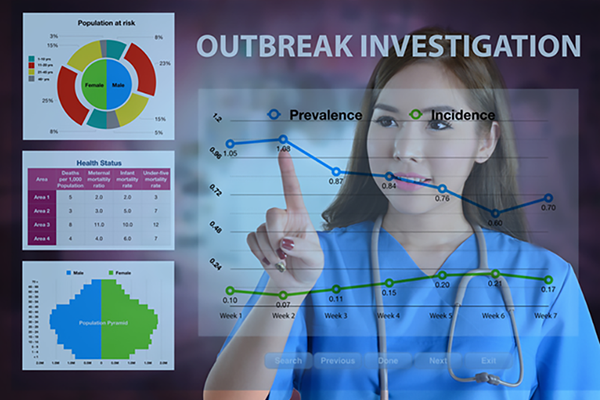
Detecting Outbreaks and Beginning Outbreak Investigation
What are the most common ways outbreaks are detected? Explore real world examples - Ebola and COVID-19 - for detecting disease outbreaks.



Register
Course Information
- Audience: Community health workers, public health professionals, nurses, people working with populations requiring chronic care
- Format: Webinar
- Date/Time: June 1, 2020
2:00 - 3:00 PM EST - Price: Free
- Length: 1 hour
- Credential(s) eligible for contact hours: Sponsored by New England Public Health Training Center (NEPHTC), a designated provider of continuing education contact hours (CECH) in health education by the National Commission for Health Education Credentialing, Inc. This program is designated for Certified Health Education Specialists (CHES) and/or Master Certified Health Education Specialists (MCHES) to receive up to 1 total Category I continuing education contact hours. Maximum advanced-level continuing education contact hours are 1. Provider ID: 1131137 Event ID: PM1131137_06082020.
If you are not seeking CHES/MCHES contact hours, if you complete the evaluation, you will receive a Certificate of Completion. The Certificate will include the length of the course. - Competencies: Community Partnership Skills
- Learning Level: Awareness
- Companion Trainings: None
- Supplemental materials:Session PowerPoint
- Pre-requisites None
About this Webinar
What are the most common ways outbreaks are detected and what are the hopes for improvements? We will look at different data sources and systems (including human relationships) that are used to detect outbreaks. The emphasis on emerging infectious
diseases and pandemic preparedness has led to changes in international health regulations at the highest levels, as well as requirements for disease detection at community levels. We will describe the ideal systems and some of the challenges;
initial steps in outbreak investigation and use examples from Ebola in West and Central Africa and COVID in 2020.
What you'll learn
At the end of the course, participants will be able to:
- Define an outbreak.
- Name 3 key sources of information from the community to assist outbreak detection.
- Describe Community Event Based surveillance (CEBS) and how it fits into more formal disease surveillance and the International Health Regulations.
- Given a scenario, decide if further investigation is warranted and when to investigate outbreaks.
- Describe the investigative team.
- Name the elements of a case definition.
Subject Matter Experts

Sharon McDonnell
BSN, MD, MPH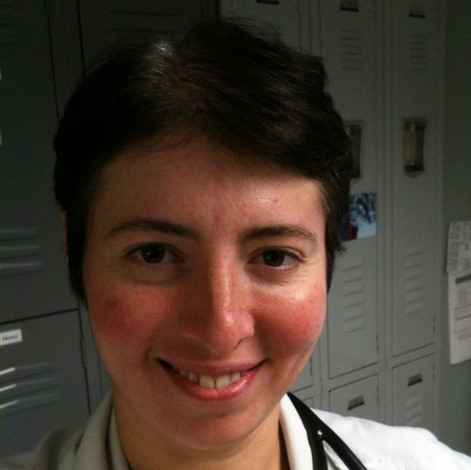
Nicoleta Toma
MD
Sharon received her BSN at the University of Florida and MD from the University of California, San Diego. After training in Family Medicine, she went to Pakistan/Afghanistan to work with NGOs and then WHO. She joined the US CDC as an EIS Officer and is board certified in Preventive Medicine and Public Health. She has worked in the state health departments in Florida and Vermont. After CDC She was on Faculty at Dartmouth Medical School and has continued to do work in International Disease Surveillance and Response and Epidemiology Training. She worked in Liberia for 2 years for the Ebola response with IRC and CSTE/CDC. Currently she teaches epidemiology with the University of New Hampshire and consults with the Leadership Preventive Medicine Residency Program at the Maine Medical Center. She helps co-found the Yarmouth Community Coronavirus Task Force in Yarmouth Maine.
Nicoleta Toma is board certified in Internal Medicine and worked as a hospitalist and primary care physician. In 2018 she enrolled in the Preventive Medicine fellowship at Maine Medical Center and as part of that program she completed her coursework for a master’s in public health degree at the University of New England. Through her MPH and Preventive Medicine Fellowship she has had the opportunity to increase her knowledge of descriptive and field epidemiology with projects in Population screening and COVID-19 response among vulnerable populations.
Registration
Select the Enroll Me button below to register for this webinar. If you have any trouble accessing the webinar, contact support@nephtc.org.
Acknowledgement: This project is/was supported by the Health Resources and Services Administration (HRSA) of the U.S. Department of Health and Human Services (HHS) under grant number UB6HP31685 “Regional Public Health Training Center Program.” This information or content and conclusions are those of the author and should not be construed as the official position or policy of, nor should any endorsements be inferred by HRSA, HHS or the U.S. Government.
* Yale School of Public Health, Office of Public Health Practice, a New England Public Health Training Center partner, is a designated provider of continuing education contact hours (CECH) in health education by the National Commission for Health Education Credentialing, Inc. All CHES credit inquiries are managed by YSPH
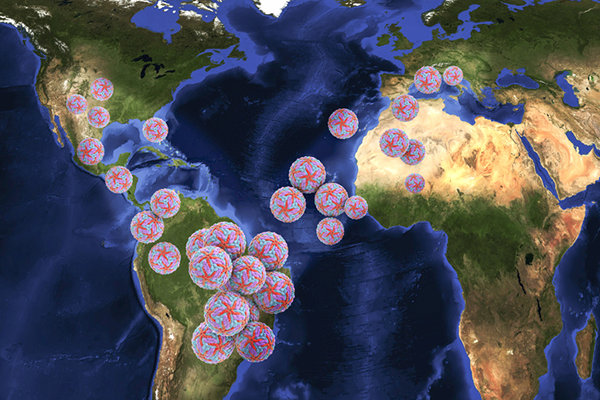
Investigating an Outbreak
Have you ever wanted to be a detective? Unleash your inner Nancy Drew and learn how to investigate an outbreak, step by step!


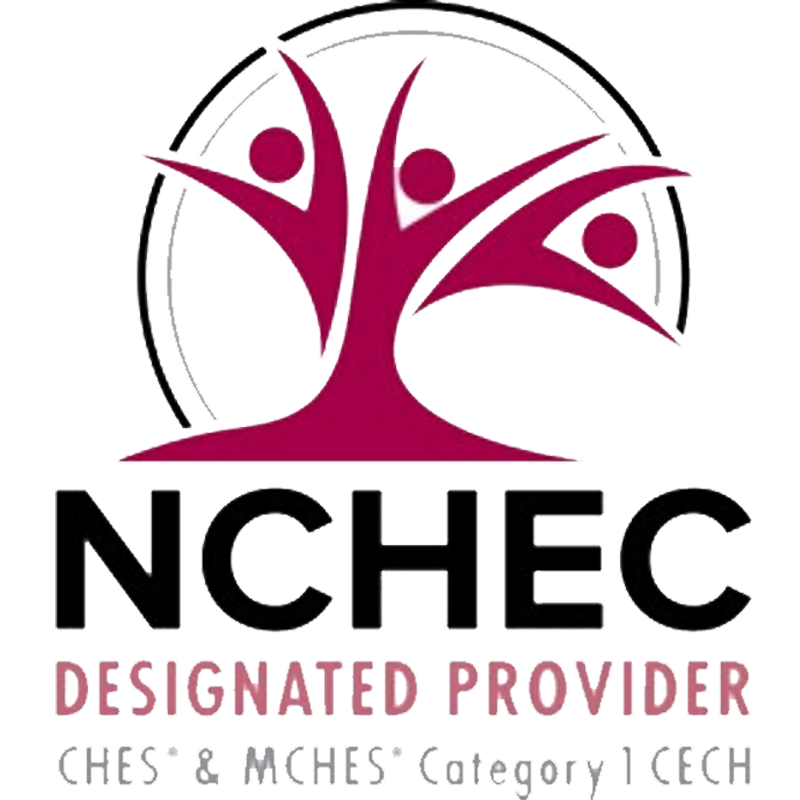
Register
Course Information
- Audience: Community health workers, public health professionals, nurses, people working with populations requiring chronic care
- Format: Webinar
- Date/Time: June 8, 2020
2:00 - 3:00 PM EST - Price: Free
- Length: 1 hour
- Credential(s) eligible for contact hours: Sponsored by New England Public Health Training Center (NEPHTC), a designated provider of continuing education contact hours (CECH) in health education by the National Commission for Health Education Credentialing, Inc. This program is designated for Certified Health Education Specialists (CHES) and/or Master Certified Health Education Specialists (MCHES) to receive up to 1 total Category I continuing education contact hours. Maximum advanced-level continuing education contact hours are 1. Provider ID: 1131137 Event ID: PM1131137_06082020.
If you are not seeking CHES/MCHES contact hours, if you complete the evaluation, you will receive a Certificate of Completion. The Certificate will include the length of the course. - Competencies: Community Partnership Skills
- Learning Level: Awareness
- Companion Trainings: None
- Supplemental materials:Session PowerPoint
- Pre-requisites None
About this Webinar
In this webinar, we will describe the process of outbreak investigation in confirmed events and continue the steps of field outbreak investigation. We will use COVID-19 and smaller outbreaks to illustrate these steps.
What you'll learn
At the end of the course, participants will be able to:
- Describe the steps of outbreak investigation.
- Given a scenario, place the steps in order.
- Using COVID-19 as an example, practice developing outbreak and surveillance case definitions.
- Describe how to conduct active case finding to find cases systematically.
Subject Matter Experts

Sharon McDonnell
BSN, MD, MPH
Nicoleta Toma
MD
Sharon received her BSN at the University of Florida and MD from the University of California, San Diego. After training in Family Medicine, she went to Pakistan/Afghanistan to work with NGOs and then WHO. She joined the US CDC as an EIS Officer and is board certified in Preventive Medicine and Public Health. She has worked in the state health departments in Florida and Vermont. After CDC She was on Faculty at Dartmouth Medical School and has continued to do work in International Disease Surveillance and Response and Epidemiology Training. She worked in Liberia for 2 years for the Ebola response with IRC and CSTE/CDC. Currently she teaches epidemiology with the University of New Hampshire and consults with the Leadership Preventive Medicine Residency Program at the Maine Medical Center. She helps co-found the Yarmouth Community Coronavirus Task Force in Yarmouth Maine.
Nicoleta Toma is board certified in Internal Medicine and worked as a hospitalist and primary care physician. In 2018 she enrolled in the Preventive Medicine fellowship at Maine Medical Center and as part of that program she completed her coursework for a master’s in public health degree at the University of New England. Through her MPH and Preventive Medicine Fellowship she has had the opportunity to increase her knowledge of descriptive and field epidemiology with projects in Population screening and COVID-19 response among vulnerable populations.
Registration
Select the Enroll Me button below to register for this webinar. If you have any trouble accessing the webinar, contact support@nephtc.org.
Acknowledgement: This project is/was supported by the Health Resources and Services Administration (HRSA) of the U.S. Department of Health and Human Services (HHS) under grant number UB6HP31685 “Regional Public Health Training Center Program.” This information or content and conclusions are those of the author and should not be construed as the official position or policy of, nor should any endorsements be inferred by HRSA, HHS or the U.S. Government.
* Yale School of Public Health, Office of Public Health Practice, a New England Public Health Training Center partner, is a designated provider of continuing education contact hours (CECH) in health education by the National Commission for Health Education Credentialing, Inc. All CHES credit inquiries are managed by YSPH
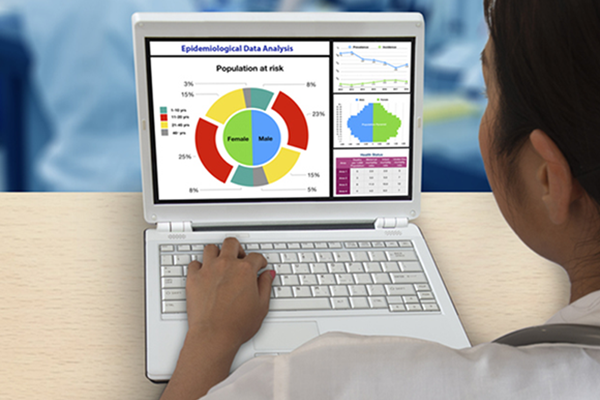
Looking at Data in an Outbreak
Are you curious about how a hypothesis is developed to implement outbreak control measures? Learn more about descriptive epidemiology and outbreak investigation.



Register
Course Information
- Audience: Community health workers, public health professionals, nurses, people working with populations requiring chronic care
- Format: Webinar
- Date/Time: June 15, 2020
2:00 - 3:00 PM EST - Price: Free
- Length: 1 hour
- Credential(s) eligible for contact hours: Sponsored by New England Public Health Training Center (NEPHTC), a designated provider of continuing education contact hours (CECH) in health education by the National Commission for Health Education Credentialing, Inc. This program is designated for Certified Health Education Specialists (CHES) and/or Master Certified Health Education Specialists (MCHES) to receive up to 1 total Category I continuing education contact hours. Maximum advanced-level continuing education contact hours are 1. Provider ID: 1131137 Event ID: PM1131137_06152020.
If you are not seeking CHES/MCHES contact hours, if you complete the evaluation, you will receive a Certificate of Completion. The Certificate will include the length of the course. - Competencies: Community Partnership Skills
- Learning Level: Awareness
- Companion Trainings: None
- Supplemental materials:Session PowerPoint
- Pre-requisites None
About this Webinar
This session emphasizes descriptive epidemiology using data collected during outbreak investigation. We will be answering what information do we collect during outbreak investigation to build towards developing a hypothesis that we can use to implement control measures or conduct research?
What you'll learn
At the end of the course, participants will be able to:
- Use the categories of Who, Where, What, When to characterize an outbreak.
- Manage outbreak information coming such as making a line list.
- Name the ways that data is organized to address these categories.
- Describe how to include qualitative data into field investigations.
- Describe how an epi curve is made and what it can tell us about an outbreak.
Subject Matter Experts

Gib Parris, MD
Richard Shen, MD
Gib trained in laboratory medicine, pathology, and epidemiology and spent 20 years at the U.S. Centers for Disease Control and Prevention (CDC). At the CDC, he worked on environmental health problems, improving mortality data, assisting state health departments with public health assessment activities, and improving national and state health information systems. After retiring from CDC, he has worked as a consultant on various population-health information-related projects, most recently on the Reportable Condition Knowledge Management system, which is identifying and evaluating potential cases of reportable conditions using data from electronic health records.
ichard received his medical degree from the University of Virginia. He has completed internal medicine residency training at Maine Medical Center, and he is currently an infectious diseases fellow at Maine Medical Center.
Registration
Select the Enroll Me button below to register for this webinar. If you have any trouble accessing the webinar, contact support@nephtc.org.
Acknowledgement: This project is/was supported by the Health Resources and Services Administration (HRSA) of the U.S. Department of Health and Human Services (HHS) under grant number UB6HP31685 “Regional Public Health Training Center Program.” This information or content and conclusions are those of the author and should not be construed as the official position or policy of, nor should any endorsements be inferred by HRSA, HHS or the U.S. Government.
* Yale School of Public Health, Office of Public Health Practice, a New England Public Health Training Center partner, is a designated provider of continuing education contact hours (CECH) in health education by the National Commission for Health Education Credentialing, Inc. All CHES credit inquiries are managed by YSPH
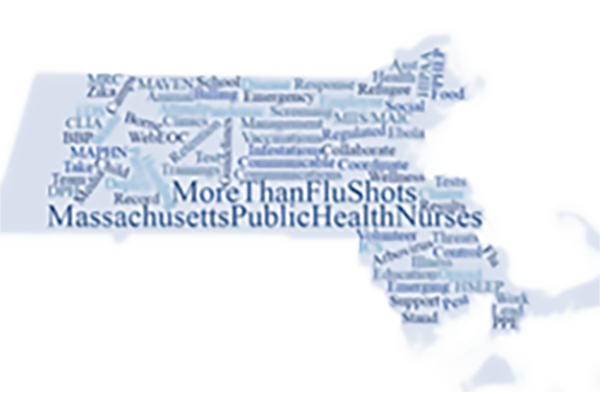
Public Health Nursing Guide to Emergency Preparedness and Response
A prepared community is a resilient community! How Public Health Nurses help all residents of a community prepare and respond to severe weather emergencies, pandemics and disasters.
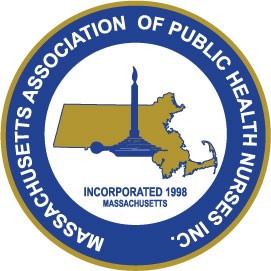
Register
Course Information
- Audience: Public Health Nurses, School Nurses, Occupational Health Nurses, Community Health Nurses, Health Directors, Health Inspectors, Medical Reserve Corps volunteers (Medical and Non-Medical)
- Format: Webinar
- Date/Time: January 30, 2024, 12:00 pm – 1:30 pm EST
- Price: Free
- Length: Each session is 60 minutes with an optional 30 minute Q&A following
- Credential(s) eligible for contact hours: Sponsored by New England Public Health Training Center (NEPHTC), a designated provider of continuing education contact hours (CECH) in health education by the National Commission for Health Education Credentialing, Inc. This program is designated for Certified Health Education Specialists (CHES) and/or Master Certified Health Education Specialists (MCHES) to receive up to 1 total Category I continuing education contact hours. Maximum advanced-level continuing education contact hours are 1. Provider ID: 1131137 Event ID: PM1131137_01302024. If you are not seeking a CHES/MCHES contact hours, if you complete the post-test and evaluation, you will receive a Certificate of Completion. The Certificate will include the length of the course.
- Competencies: Public Health Sciences Skills
- Learning Level: Performance
- Companion Trainings: Public Health Nursing Guide: to Immunizations and Vaccine Preventable Disease
Public Health Nursing Guide to Infectious Disease Surveillance & Investigation
Annual MDPH Immunization Training
MAVEN On-Line Training
ICS-100 – 800, HSEEP - Pre-requisites: None
About this Webinar
Public Health Nurses in Massachusetts have a vast and varied accounting of job responsibilities, position descriptions and dedicated hours for PHN services. The one hour webinars will provide an introduction into the three areas of concentration for PHNs in MA: Infectious Disease, Immunizations and Emergency Preparedness with resources clearly identified through membership in the Massachusetts Association of Public Health Nurses; the only state recognized Public Health Nursing Organization.
What you'll learn
At the end of the webinar, participants will be able to:
- Discuss your role as the public health nurse in emergency preparedness and response using the nursing process.
- Review tools, trainings and techniques to utilize for community emergency preparedness and response.
- Identify resources available for personal, professional and community emergency preparedness and response.
- Q & A
Subject Matter Experts

Kitty C. Mahoney
RN, BSN, MS
Jessica Tracy
MSN, RN
Angela Kramer
MS, RN
Sara Harris
MSN, RN
Kitty Mahoney, Chief Public Health Nurse for the Town of Framingham from 2004-2022, has been a Public Health Nurse for nearly 20 years. Kitty has twice served as Moderator at the American Public Health Association Scientific Sessions “Disparities in Health Care for Women, Minorities and Military” and “Hot Topics in Public Health Nursing”. She defended “100 Years of Public Health Nursing in Massachusetts” at the 2011 APHA Poster Session in Washington, DC. Kitty Mahoney routinely speaks on behalf of Public Health Nursing and has served two terms as Vice President, two terms as President and currently serves as Communications and Web Manager for the Massachusetts Association of Public Health Nurses. She has served on several local and public health committees including academic collaborations in advancing Operation Stand Down With MAPHN; providing foot care for Homeless and At Risk Veterans. In 2014 she was awarded Public Health Fellow through the Local Public Health Institute / Boston University School of Public Health. In 2013 she received the Governors Appointment to the Division of Professional Licensure for Certified Health Officers. Kitty Mahoney was recognized with the Creative Nursing Award at the American Public Health Association in 2018 and currently serves as the Communications and Webmaster for MAPHN.
Jessica Tracy currently works for the Massachusetts Department of Public Health Office of Local & Regional Health and has 17+ years’ experience working for local municipalities in multiple capacities. She held many titles in the local public health arena including animal control officer, animal health inspector, health inspector and served out the last 9 years in local health as the Dedham Public Health Nurse. She entered the profession of public health nursing in 2015 after successfully completing her Diploma in Nursing at the Brockton Hospital School of Nursing and received a full scholarship to complete her Master of Science in Nursing, Community/Public Health Nursing at Worcester State University, 2022. Among the various certifications she has received, she has successfully obtained her Registered Environmental Health Specialist/Registered Sanitarian Credential to ensure competency in a range of environmental health topics including vector control, water quality, hazardous materials, infectious disease, air quality, built environment, and how to direct and train personnel to respond to routine or emergency environmental situations. She is also a Community Emergency Response Trainer (CERT) and past coordinator of local Medical Reserve Corps (MRC). Her many leadership roles with-in the Massachusetts Association of Public Health Nurses (MAPHN) include immediate past President of the MAPHN Southeast Chapter, past Treasurer of the MAPHN Executive Board and current Chair of the Outreach, Visibility & Membership (OVM) Committee of MAPHN. She maintains memberships with the Massachusetts Association of Public Health Nurses and American Public Health Association. She is the author of the 2022 MAPHN White Paper: The Future of Massachusetts Public Health Nursing is Now. After receiving a scholarship on behalf of MAPHN, she stewards a team of 5 MAPHN members through The Public Sector Consortium: Leaders and Partnerships for The Public Good at the Lincoln Land Institute of Policy and commits to the vision that: Public health nurses are among the strategic public health professionals in all the Massachusetts cities and towns. Public Health Nurses are responsible for keeping the residents of each town or city healthy and safe through public health regulations. Municipal Public Health Nurses are responsible for the development and implementation of local public health programs in compliance with federal state and local laws and regulations. She has been awarded several grants and facilitated many programs throughout her profession. Most notably, 2018 she was the recipient of the Drug Free Community Support Program Grant (DFC) which federally funds over one million dollars for the prevention of youth substance misuse in the community. In 2022, she advocated for innovative ways for local health departments to build resiliency, provide tools and enhance skills for mental health response by uniting seven communities to send champions such as public health nurses to become trained as Mental Health 1st Aid Instructors to teach in their own communities. In 2023, she was awarded the MAPHN Annual Public Health Nurse Annual given to a Public health Nurse in recognition of dedication and excellence in the field of public health nursing. “It is my personal and professional goal to save the profession of public health nursing for the public good.” -Jessica Tracy
Angela Kramer is a Public Health Nurse for the Town of Ludlow, MA. Angela currently is the Western Mass MAPHN Chapter Secretary/Treasurer and the MAPHN Treasurer. Angela has been working as a Public Health for 11 years in the town of Ludlow, doing home visits, including Foot and Nail Care for the elderly and running Vaccine Clinics. Angela is also a member of APHA and MHOA. Angela has served on several local and Public Health committees within MAPHN and other rganizations. Angela presented a poster at the 2022 MAPHN Conference “Keeping Our Community Safe During the COVID-19 Pandemic.” Angela has participated in the local Operation Stand Down in 2019 providing foot care for the Veteran’s. Angela is currently an Ambassador for the Boys and Girls Club in Ludlow and works with the CEO providing assistance and trainings as needed. She is currently offering a Tai Chi Chan Class for Balance and Safety and will be participating in a series with the Senior Center in April, 2023. Angela is currently the Vaccine Coordinator for the town and participates in the DPH VFC Program.
Sara Harris has been a registered nurse for over 12 years and has experience in school nursing, homecare nursing for medically fragile patients and for the last half of her career, Public Health Nursing. She has worked in thriving cities like Somerville as the Public Health Nurse Manager and Medford as the COVID19 Rapid Response Nurse / Supervising Public Health Nurse. She is currently the Deputy Chief of Public Health Nursing for the city of Worcester. Sara completed her BSN from Endicott College in 2010 and MSN in Global Health Nursing from Endicott in 2020. She is on the Cummings Foundation Advisory Board at Endicott College where she advocates for the addition of public health and community health nursing internships and curriculum across the programs. Sara has been a clinical instructor for nursing students for the last 5 years from schools including Endicott College, Northeastern University, MA College of Pharmacy and Health Science, Regis College, and many more. She is the current Vice President of the Massachusetts Association of Public health Nurses (MAPHN) and has served as the Secretary of the Northeast Chapter of the MAPHN.
Registration
Select the Enroll Me button below to register for this recording. If you have any trouble accessing the recording, contact support@nephtc.org.
Acknowledgement: This project is supported by the Health Resources and Services Administration (HRSA) of the U.S. Department of Health and Human Services (HHS) as part of award 2 UB6HP31685‐05‐00 “Public Health Training Centers.” The contents are those of the author(s) and do not necessarily represent the official views of, nor an endorsement, by HRSA, HHS or the U.S. Government.

Using Available Data to Monitor Health and Detect Outbreaks
Who loves data? Everyone! Learn how to use data to monitor health status and detect problems, including disease outbreaks.



Register
Course Information
- Audience: Community health worker, public health professional, nurses, people working with populations requiring chronic care
- Format: Webinar
- Date/Time: May 28, 2020
12:00 - 1:00 PM EST - Price: Free
- Length: 1 hour
- Credential(s) eligible for contact hours: Sponsored by New England Public Health Training Center (NEPHTC), a designated provider of continuing education contact hours (CECH) in health education by the National Commission for Health Education Credentialing, Inc. This program is designated for Certified Health Education Specialists (CHES) and/or Master Certified Health Education Specialists (MCHES) to receive up to 1 total Category I continuing education contact hours. Maximum advanced-level continuing education contact hours are 1. Provider ID: 1131137 Event ID: PM1131137_05252020.
If you are not seeking CHES/MCHES contact hours, if you complete the evaluation, you will receive a Certificate of Completion. The Certificate will include the length of the course. - Competencies: Community Partnership Skills
- Learning Level: Awareness
- Companion Trainings: None
- Supplemental materials:Session PowerPoint
- Pre-requisites None
About this Webinar
Following the previous presentation on surveillance we will dive into real systems and show how to access data to answer questions. Participants will practice accessing data to monitor health and detect health problems in the population. Participants, using computers, will use CDC WONDER and sentinel surveillance to assess health trends. We will discuss the newest data source-- medical records for public health.
What you'll learn
At the end of the course, participants will be able to:
- Access existing morbidity and mortality datasets, including CDC WONDER and notifiable disease information.
- Review sources of data, such as sentinel surveillance.
- Describe how health records are being used for public health.
Subject Matter Experts

Gib Parris
MD
Sharon McDonnell
BSN, MD, MPH
Gib trained in laboratory medicine, pathology, and epidemiology and spent 20 years at the U.S. Centers for Disease Control and Prevention (CDC). At the CDC, he worked on environmental health problems, improving mortality data, assisting state health departments with public health assessment activities, and improving national and state health information systems. After retiring from CDC, he has worked as a consultant on various population-health information-related projects, most recently on the Reportable Condition Knowledge Management system, which is identifying and evaluating potential cases of reportable conditions using data from electronic health records.
Sharon received her BSN at the University of Florida and MD from the University of California, San Diego. After training in Family Medicine, she went to Pakistan/Afghanistan to work with NGOs and then WHO. She joined the US CDC as an EIS Officer and is board certified in Preventive Medicine and Public Health. She has worked in the state health departments in Florida and Vermont. After CDC She was on Faculty at Dartmouth Medical School and has continued to do work in International Disease Surveillance and Response and Epidemiology Training. She worked in Liberia for 2 years for the Ebola response with IRC and CSTE/CDC. Currently she teaches epidemiology with the University of New Hampshire and consults with the Leadership Preventive Medicine Residency Program at the Maine Medical Center. She helps co-found the Yarmouth Community Coronavirus Task Force in Yarmouth Maine.
Registration
Select the Enroll Me button below to register for this webinar. If you have any trouble accessing the webinar, contact support@nephtc.org.
Acknowledgement: This project is/was supported by the Health Resources and Services Administration (HRSA) of the U.S. Department of Health and Human Services (HHS) under grant number UB6HP31685 “Regional Public Health Training Center Program.” This information or content and conclusions are those of the author and should not be construed as the official position or policy of, nor should any endorsements be inferred by HRSA, HHS or the U.S. Government.
* Yale School of Public Health, Office of Public Health Practice, a New England Public Health Training Center partner, is a designated provider of continuing education contact hours (CECH) in health education by the National Commission for Health Education Credentialing, Inc. All CHES credit inquiries are managed by YSPH


